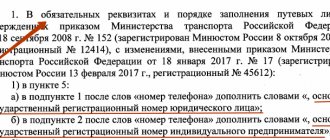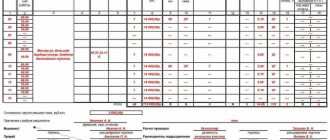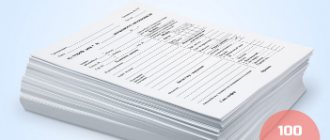Travel by private car
When traveling on a business trip for using a personal car for business purposes, the employee is entitled to compensation provided for in Article 188 of the Labor Code of the Russian Federation. The organization determines the amount of such compensation independently.
An employee who was on a business trip in personal transport - a car or a motorcycle - must submit a memo to the accounting department. This is the requirement of paragraph 7 of the regulation approved by Decree of the Government of the Russian Federation of October 13, 2008 No. 749.
However, this resolution does not specify the contents of the memo. The official document only says that the actual duration of the trip must be recorded in the note.
Do not overload the note with unnecessary information. After all, this is not the document that confirms the use of the car.
At the same time, a memo is needed to calculate daily allowances and confirm relevant expenses. This means that it must contain the details required for the primary document (Part 2 of Article 9 of the Law of December 6, 2011 No. 402-FZ). These include the name and date of the document, the name of the organization, the content of the business transaction, the value of the physical measurement - the number of days of travel, the signature of the employee. We also recommend that you provide information that is usually contained in any travel document: time and place of departure and arrival.
Upon returning from a business trip, the employee submits a memo to the employer. He attaches supporting documents to it confirming the use of personal transport to travel to and from the place of business trip. For example, waybills, invoices, receipts, cash receipts, etc. This is stated in paragraph 7 of the regulations approved by Decree of the Government of the Russian Federation of October 13, 2008 No. 749.
Business trip in 2021: rules and important nuances
The key rules that reveal the specifics of business trips are contained in Art. 166 Labor Code of the Russian Federation. It states that a business trip is a trip by an employee by order of the employer for a certain period of time to carry out an official assignment outside the place of permanent work.
From Art. 166 of the Labor Code of the Russian Federation it follows that:
- A business trip must be of a production nature.
- Only those persons who are registered under an employment contract, and not under a civil law contract, can be sent on a business trip.
- Business trips of employees whose permanent work is carried out on the road or is of a traveling nature are not recognized as business trips. This nature of the work is specified in the employment contract.
- The duration of the business trip must be reasonable. The Letter of the Ministry of Finance of Russia dated April 28, 2010 No. 03-03-06/1/304 states that “if employees perform most of the working time and most of the labor duties stipulated by the employment contract in a foreign country, the actual place of work of the employees will be be in a foreign country and such employees cannot be considered to be on a business trip.”
Letter of the Ministry of Labor dated 06/09/2017 No. 14-2/OOG-4733 also provides clarifications regarding remote workers: “Trip of an employee sent on a business trip on the basis of a written decision of the employer to a separate unit of the sending organization (representative office, branch) located outside the place of permanent work , is also recognized as a business trip.” Therefore, a teleworker’s trip to the employer’s head office is a business trip.
The fact that an employee works remotely must be recorded in the employment contract as the place of work (Article 57 of the Labor Code of the Russian Federation). The home address of the home worker is indicated as the place of work.
A trip to a branch of an organization outside of permanent work is also regarded as a business trip. This is indicated by clause 3 of the Regulations on the specifics of sending employees on business trips (approved by Decree of the Government of the Russian Federation of October 13, 2008 No. 749). In this case, employees are sent on business trips based on a written decision of the employer for a certain period of time to carry out an official assignment outside their place of permanent work.
Personal car: personal income tax and insurance premiums
Compensation for the use of an employee’s personal car is not subject to:
– Personal income tax (clause 3 of article 217 of the Tax Code of the Russian Federation);
– contributions for compulsory pension (social, medical) insurance (subparagraph “and” paragraph 2, part 1, article 9 of the Law of July 24, 2009 No. 212-FZ);
– contributions for insurance against accidents and occupational diseases (paragraph 10, subparagraph 2, paragraph 1, article 20.2 of the Law of July 24, 1998 No. 125-FZ).
For more information about this, see How to take into account when taxing the costs of paying compensation for the use of an employee’s personal car.
Situation: is it necessary to withhold personal income tax from compensation to an employee for the cost of parking a personal car on a business trip?
Answer: yes, it is necessary if such payment is formalized as reimbursement of travel expenses.
Amounts for reimbursement of travel expenses are exempt from personal income tax (clause 3 of article 217 of the Tax Code of the Russian Federation). Such expenses include daily allowances, travel and baggage costs, airport service fees, commission fees, expenses for renting residential premises, payment for communication services, obtaining and registering a service passport, obtaining visas, as well as costs associated with exchanging cash. . Such a list is established by paragraph 3 of Article 217 of the Tax Code.
Compensation for the cost of parking an employee’s personal car is not mentioned here. Therefore, it is not included in travel expenses. This means that personal income tax must be withheld from such compensation.
Similar clarifications are given in the letter of the Ministry of Finance of Russia dated April 25, 2013 No. 03-04-06/14428.
Advice: there is a way not to withhold personal income tax from compensation for the cost of parking a business trip employee’s personal car. It is as follows.
All types of compensation payments established by Russian legislation and related, in particular, to the performance of work duties by an employee (clause 3 of Article 217 of the Tax Code of the Russian Federation) are exempt from personal income tax.
If an employer uses an employee’s personal property (including a car), then he is obliged to:
- pay him compensation for the use of personal property (car);
- reimburse the costs associated with such use.
This is established by Article 188 of the Labor Code.
The cost of parking can be considered an expense associated with the use of an employee's personal vehicle for business purposes. Consequently, compensation for parking costs is recognized as a payment established by law and related to the employee’s performance of work duties. And, accordingly, it is not subject to personal income tax.
Thus, personal income tax on compensation for the cost of parking for an employee who goes on a business trip in a personal car may not be withheld. But in order to avoid claims from regulatory agencies, arrange such compensation not as travel expenses, but as reimbursement for costs associated with the use of the employee’s personal car.
This approach is confirmed by the Russian Ministry of Finance in letter dated December 1, 2011 No. 03-04-06/6-328.
Personal car: income tax
When calculating income tax, compensation for the use of a personal car can be taken into account only within the limits established by Decree of the Government of the Russian Federation of February 8, 2002 No. 92 (letter of the Federal Tax Service of Russia dated May 21, 2010 No. ШС-37-3/2199). These rules are also intended for calculating a single tax when simplifying the difference between income and expenses. At the same time, according to the regulatory agencies, the standards established by the Government of the Russian Federation already include depreciation of the car, as well as reimbursement of costs for routine repairs, maintenance and the purchase of fuels and lubricants (letter of the Ministry of Finance of Russia dated September 15, 2005 No. 03-03-04/ 2/63, dated May 16, 2005 No. 03-03-01-02/140 and the Ministry of Taxes of Russia dated June 2, 2004 No. 04-2-06/419).
Therefore, no additional payments are made to an employee who uses a personal car for business trips (letters from the Ministry of Finance of Russia dated September 15, 2005 No. 03-03-04/2/63, dated May 16, 2005 No. 03-03-01- 02/140 and the Ministry of Taxes of Russia dated June 2, 2004 No. 04-2-06/419).
Advice: during the business trip, enter into a rental agreement with the employee for his personal car. Taxable profit can be reduced by the entire amount of the rental payment, and if supporting documents are available, by all costs associated with operating the car (subclause 2, clause 1, article 253, subclause 10, clause 1, article 264 of the Tax Code of the Russian Federation). If an organization does not enter into a rental agreement, then it can use the following arguments to justify reimbursement of expenses for the use of a personal car during a business trip.
Article 188 of the Labor Code of the Russian Federation deals with two payments in favor of the employee. The first is compensation for wear and tear of a personal car, and the second is reimbursement of expenses associated with its use (purchase of fuel, maintenance, etc.). In the letter of the Ministry of Finance of Russia dated November 2, 2004 No. 03-05-01-04/72, these payments are also considered separately.
Thus, when sending an employee on a business trip in a personal car, in addition to compensation, the organization must reimburse him for the costs of purchasing gasoline, paid parking, etc. (Article 168 of the Labor Code of the Russian Federation). These costs can be classified as material expenses, as well as travel expenses to and from the business trip. Such costs can be taken into account when taxing profits (subclause 2, clause 1, article 253, subclause 12, clause 1, article 264 of the Tax Code of the Russian Federation). The basis for reimbursement of expenses will be waybills, gas station receipts, etc. That is, the same documents used by employees sent on a business trip in a company car to confirm their expenses.
However, the tax inspectorate is unlikely to agree with this interpretation of the legislation. When checking, the inspector will be guided by letters of the Ministry of Finance of Russia dated September 15, 2005 No. 03-03-04/2/63 and the Ministry of Taxes of Russia dated June 2, 2004 No. 04-2-06/419. Therefore, most likely, he recognizes as unlawful the simultaneous reduction of the tax base by both the amount of compensation for the use of a personal car and the amount of reimbursement for travel expenses. In such conditions, the organization must make the final decision on settlements with the employee independently. Moreover, if this decision contradicts the requirements of the Russian Ministry of Finance, the organization will have to defend its position in court.
Documentation of a business trip by car
The table provides a list of required documents depending on how the employee goes on a business trip: in the employer’s car or in his own car, receives rent or compensation for the use of his vehicle.
Required documents | Travel by car | ||
| employee | employer | ||
| rent | compensation for use | ||
| Lease agreement for a vehicle without a crew (Articles 642 and 643 of the Civil Code of the Russian Federation) | • | — | — |
| Certificate of acceptance and transfer of property for rent (letter of the Ministry of Finance of Russia dated June 15, 2015 No. 03-07-11/34410) | • | — | — |
| A document confirming the employee’s ownership of a car, for example, a copy of the title (Article 608 of the Civil Code of the Russian Federation; letter of the Ministry of Finance of Russia dated June 27, 2013 No. 03-04-05/24421) | •* | — | — |
| An additional agreement to an employment contract or a separate agreement on the use of an employee’s car in the interests of the employer, establishing the amount of compensation for the use of such property (Article 188 of the Labor Code of the Russian Federation) | — | • | — |
| Order on sending an employee on a business trip using a leased, personal or employer-owned vehicle (clause 3 of the Regulations on the specifics of sending employees on business trips, approved by Decree of the Government of the Russian Federation of October 13, 2008 No. 749 - hereinafter referred to as the Regulations) | • | • | • |
| An official note and/or other document that confirms the actual length of stay on a business trip, for example a travel certificate with notes from the receiving party (organization or official) about the date of arrival (departure) of the employee to the place (from the place) of the business trip (clause 7 of the Regulations) | • | • | • |
| An advance report with attached primary documents confirming travel expenses during a business trip: receipts for fuel and lubricants, etc. (clause 26 of the Regulations) | • | • | • |
| A waybill containing information about the route during the business trip and the amount of fuel and lubricants consumed (letter of the Ministry of Finance of Russia dated September 23, 2013 No. 03-03-06/1/39406; Resolution of the Moscow District Arbitration Court dated April 8, 2015 No. F05-3450/2015 in case No. A40-108772/14) | • | • | • |
Note. *The written permission of the car owner to provide his property for rent by an employee can be used as a supporting document.
Accounting, payroll and reporting in a friendly service.
Try it for free
Travel by company car
When paying expenses for a business trip in a company car, the organization can reimburse the following costs:
- for the purchase of fuels and lubricants;
- related to the operation and maintenance of the car during a business trip (for example, the cost of parking, repairs along the way, etc.).
The procedure for traveling on a business trip on official transport is not regulated by current legislation. Therefore, the employer can prescribe special rules for such a situation in a local regulatory act issued in accordance with Article 8 of the Labor Code of the Russian Federation (for example, in the Regulations on Business Travel). The correctness of this approach is confirmed by Rostrud in a letter dated April 10, 2015 No. 831-6-1.
Daily allowance in 2021
The employer pays daily allowances in the amount established by the local regulatory documents of the organization.
Since daily allowances are not the employee’s income, they are not subject to personal income tax. However, this rule applies if the daily allowance does not actually exceed the maximum amount not subject to personal income tax and insurance contributions in 2021:
- 700 rub. per day - for trips around Russia;
- 2,500 rub. per day - for trips abroad.
The company has the right to issue daily allowances greater than the maximum amount, but in this case, income tax and contributions will be levied on the difference between the money paid and the designated limit.
To pay daily allowance, it is important to correctly take into account the days of the business trip. Per diem is paid for each day of a business trip, including weekends, holidays and days spent on the road.
Easy calculation of salaries and travel allowances, fast accrual of sick leave and vacation pay
To learn more
When traveling to the place of business trip on personal or official transport, the number of days will be determined by the memo. The employee provides this document upon returning from a business trip. Attached to it are documents (waybills, invoices, cavitations, cash receipts from gas stations) that confirm the vehicle’s route. In all other cases, the number of days is confirmed by travel documents.
Pay attention to part 2 of paragraph 16 of the Government of the Russian Federation of October 13, 2008 No. 749, which states that payment of daily allowance to an employee in foreign currency when sent on a business trip outside the territory of the Russian Federation “is carried out in the manner and amount provided for in paragraph. 2 clause 11 of the Regulations on business trips, taking into account the features provided for in clause 19 of the Regulations.” That is, in the amount established in local regulations.
If there is no mark in the international passport (business trips to CIS countries), then the number of days is calculated using travel documents. In all other cases - according to the mark in the passport.
If a business trip involves travel to a nearby area and the employee returns home daily after performing official duties, per diem is not paid.
To correctly calculate travel allowances, use a special cheat sheet.
Supporting documents
All facts of economic life (including travel expenses) must be confirmed by primary documents (Article 9 of the Law of December 6, 2011 No. 402-FZ, Article 252 of the Tax Code of the Russian Federation). These include:
- cash and (or) sales receipts;
- gasoline coupons;
- slips (if gasoline was paid for with a fuel card);
- receipts issued at parking lots;
- auto repair shop bills, etc.
The employee must attach documents confirming travel expenses to the advance report.
The mileage of the car during a business trip is confirmed by waybills. Prepare your waybills:
– either according to standardized forms;
– or according to forms developed by the organization independently and approved by the head of the organization.
This conclusion follows from Part 4 of Article 9 of the Law of December 6, 2011 No. 402-FZ.
The following standardized forms are provided for waybills:
- No. 3 for a passenger car;
- No. 3 special for special vehicles;
- No. 4 for passenger taxi;
- No. 4-S or No. 4-P for a truck;
- No. 6 special for buses (except for route buses).
The listed forms of waybills were approved by Decree of the State Statistics Committee of Russia dated November 28, 1997 No. 78.
The issuance of waybills to drivers and their receipt by the accounting department should be reflected in the logbook for recording the movement of waybills (either according to an independently developed form, or according to Form No. 8, approved by Resolution of the State Statistics Committee of Russia dated November 28, 1997 No. 78).
For what period should a waybill be issued?
Order No. 152 of the Ministry of Transport says that if a waybill is issued for more than one day, then the start and end dates of the flight are indicated on it - day, month, year. During this period, the waybill must be used. But what to do if:
- You don't know exactly when the driver will return. This is quite possible - it all depends on what faults are found in the car at the service station, whether you will have to order and wait for some parts, etc. Then put an approximate return date on your travel itinerary, taking into account a few “spare” days.
- The driver does not have time to return by the time specified on the waybill. In this case, you need to issue a new waybill for the return journey. The driver can fill it out himself or contact another organization, such as a service station. In any case, the driver should always have several blank spare forms for this case.
Note! The sheet must be issued on behalf of the owner of the vehicle, that is, the driver’s employer - and with the correct serial number. Therefore, the driver in such a situation calls the employer and finds out the next number in the travel log of the waybills. The organization (in our case, the service station) puts this number on the waybill.
Will this constitute a violation and could the inspection authorities subsequently raise questions? We specifically addressed a request to the Ministry of Transport about this, and received an answer that the waybill does not require a seal or stamp of the owner of the vehicle, so there will be no problems.
In this case, two waybills will be issued for one trip.
The first one is from the employer’s location to the service station (the route is indicated). The second is from the service station back (the return route is indicated). As a result, two waybills for one business trip will “fight”.
Yes, and do not forget that all the required details must be filled in on the return waybill, including a mark on passing a medical examination and a note from the vehicle inspector on the pre-trip inspection of the car. By the way, let’s look at these nuances.











